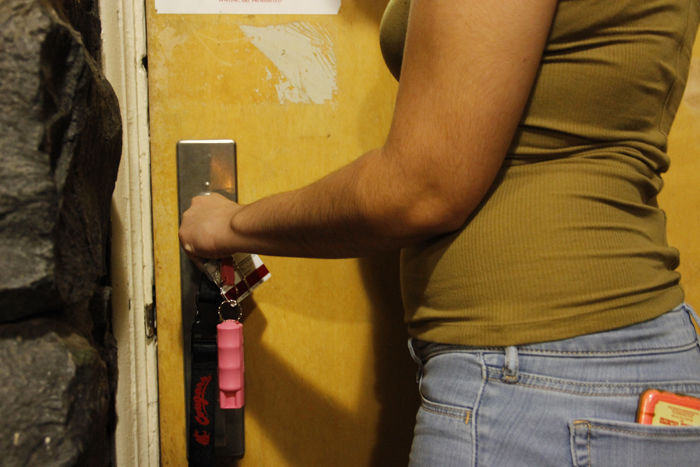Dorms cannot be searched without warrant
You should appreciate living in the dorms, because it only gets worse from here.
August 30, 2016
Although students lose some individual privacy in the college living environment, they retain their Fourth Amendment rights even when staying in university-owned housing.
According to U.S. News and World Report, 25 percent of students at WSU live on campus. For some Cougs, living in a dorm is their first experience in a long-term communal space away from home and the jurisdiction of their parents.
Students are still entitled to the right to be “secure in their persons, houses, papers, and effects, against unreasonable searches and seizures,” as stated by the Constitution. Courts recognize dorm rooms and similar living arrangements as the student’s “home-away-from-home,” according to the National Association of College and University Attorneys.
As the Constitution states, in order for it to be “reasonable” and lawful, searches must be conducted with a search warrant issued upon probable cause. However, exceptions to that rule apply to universities just as they do in life outside campus.
“If the police have just cause to enter, it works the same way as a private residence,” Kate Gannon-Cullinan, Residence Life assistant director, said. “The common areas are a little different. They don’t need permission to enter the building.”
Warrantless searches and seizures are legal in situations such as those in which evidence is in plain view, or following lawful arrest, according to the Constitution.
Students who are unaware of their right to privacy may unintentionally incriminate themselves by allowing authorities into their rooms.
However, WSU has the right to make periodic room inspections, and authorized ResLife or WSU staff may exercise the right to enter a resident’s room, according to the WSU Pullman Housing Policies.
Rooms may be entered for maintenance and sanitation, fire safety inspections, and emergency situations. They may also be checked if the room isn’t properly closed for break periods or something in the room is distracting other residents, according to the housing policies.
According to the policy, a university official cannot give consent to a police or government official to search a student’s room. However, WSU may permit a search if the official has a warrant or where warrantless entry is lawful.
In the 2010 decisions of Commonwealth v. Carr, charges of drug possession made against Daniel Carr were overruled at Massachusetts’s highest court after it was decided that he involuntarily consented to the search.
“Sergeant Derick’s pronouncement, ‘I would like to search the room,’ sounded more like an order than a request,” according to the Commonwealth v. Carr case documents.
Flex Your Rights, an educational nonprofit that educates the public about how basic Bill of Rights protections apply during law enforcement encounters, advises students to “politely” refuse searches and decline to self-incriminate.









